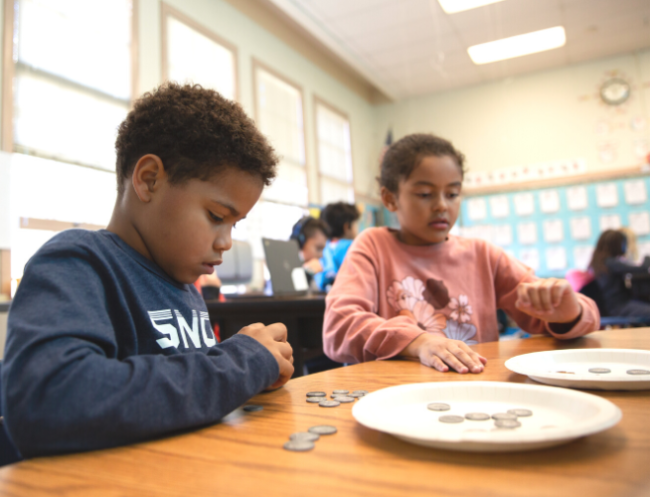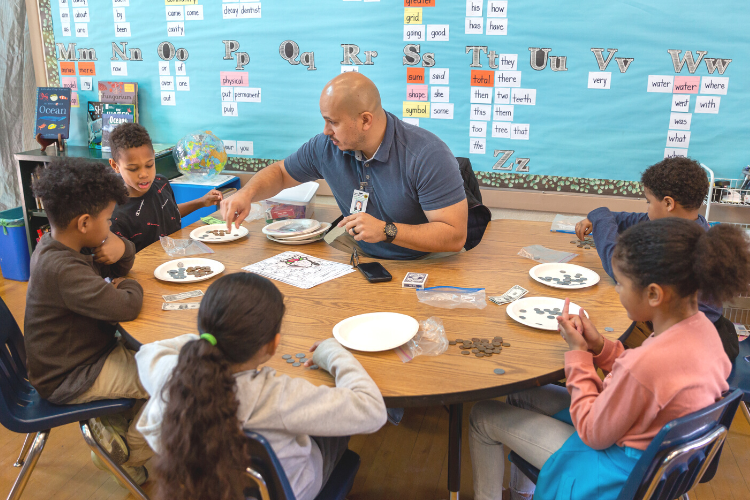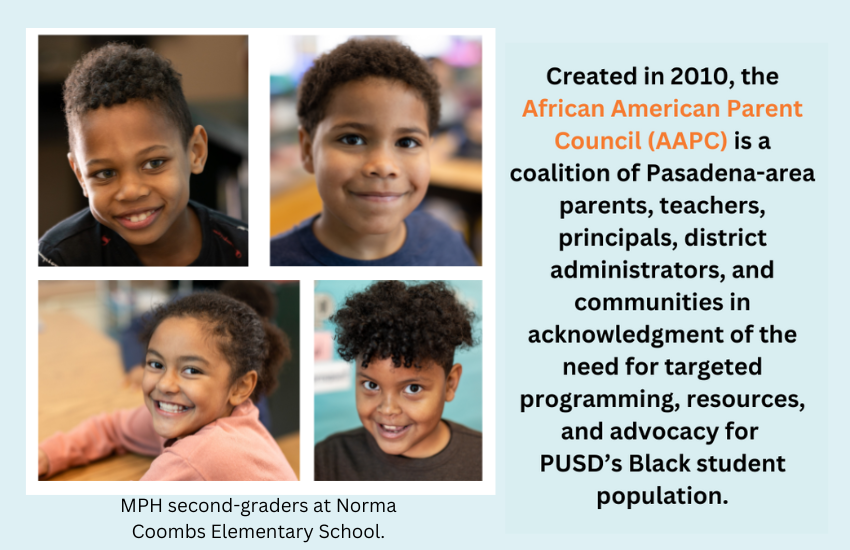 Second-grade students at Norma Coombs Elementary School count coins during a Math Power Hour session.
Second-grade students at Norma Coombs Elementary School count coins during a Math Power Hour session.
In 2019, PUSD’s African American Parent Council (AAPC) debuted Math Power Hour (MPH) to bolster the math skills of PUSD’s Black first and second graders and close persistent opportunity gaps in academic achievement. At six elementary school campuses, volunteers work in classrooms during daily math instruction to provide students with small group or one-on-one assistance. A recent Education Grant from Pasadena Community Foundation will help AAPC expand the program to two additional schools and serve 100 additional children.
intervention based on data and with community input
MPH began after the AAPC spent years analyzing data of underperforming demographics within the school district. The organization and district stakeholders spent time learning from teachers, principals, educational experts, students, and nonprofit organizations that center their missions on academic intervention, like Reading Partners. “We brought everyone to the table,” remembers Natasha Mahone, who recently joined PCF for a conversation along with her colleague Nate Bradley. Both are PUSD parents, leaders within AAPC, and two of the originators of MPH.
AAPC’s mission is to identify how to affect the opportunity gap among PUSD students. “Black students have historically performed at a lower levels when it comes to English and math,” says Mahone. “So AAPC’s academic goal has always been to ask ‘what can we do to move the needle?’”
Bradley describes a listening session held at Marshall Fundamental High School as MPH was just starting to take form several years ago. Teen students recounted that as early as kindergarten, they had negative experiences in math. “They made a decision that early that math was just not something they could do. So that really opened our eyes and energized us even more to pull the program together and help these kids as early as possible.”
With data and community input in hand, AAPC designed Math Power Hour to offer early intervention and provide assistance in tiers. All Black first- and second-grade students, regardless of skill, participate in the program. Next, Latino students who struggle in math are assisted. Finally, if space allows, the program opens to any PUSD first- and second-grade students who need extra math support.
Building Relationships to Elevate Students’ Confidence
Bradley and Mahone describe MPH as a holistic program, one that specifically focuses on relationship building to elevate students’ confidence in the math classroom. Adults who are reliable and consistent are the cornerstone of MPH. Their regular classroom presence helps build trust with their students. Mahone adds that having volunteers who look like the student population and/or come from the same neighborhoods or similar backgrounds help students feel a sense of common ground:
“We found that in building these relationships, that’s where we’re growing their confidence and strength. Now we’re truly able to influence that young heart, that young mind, so that when they get to third and fourth grade, their confidence has been growing for two years. When they take those standardized tests, they can say, ‘I got this!’”



